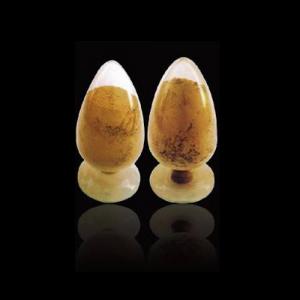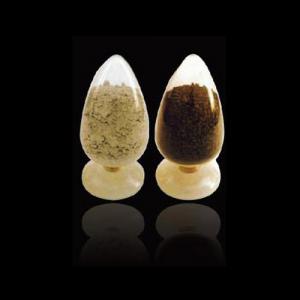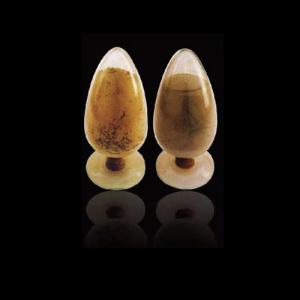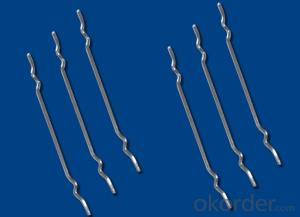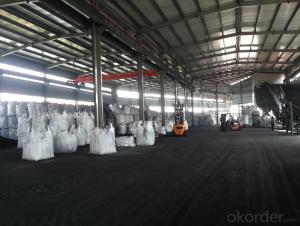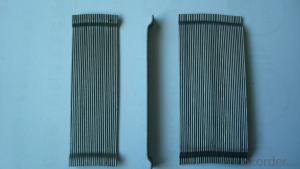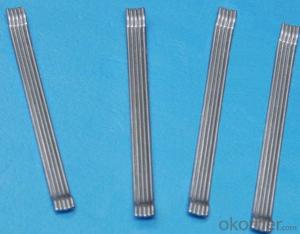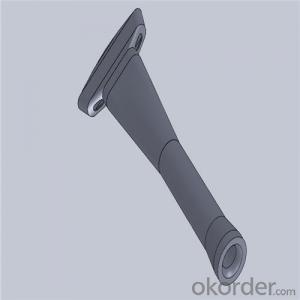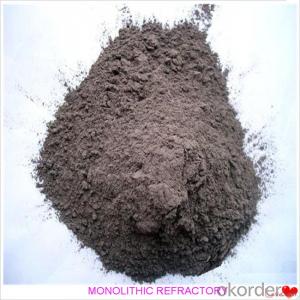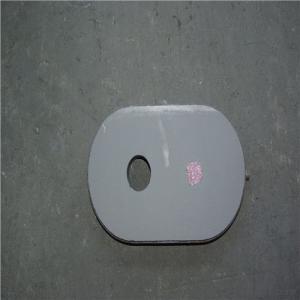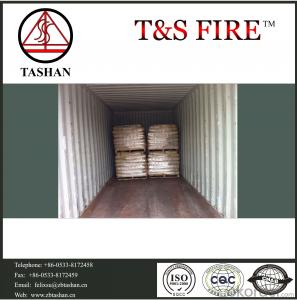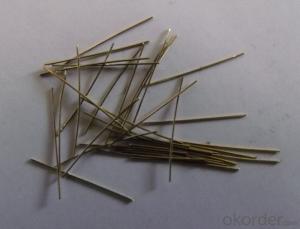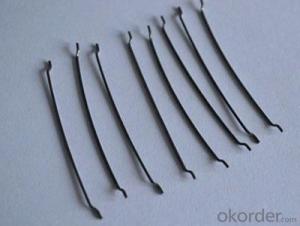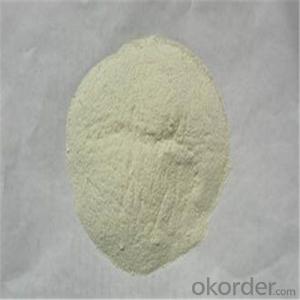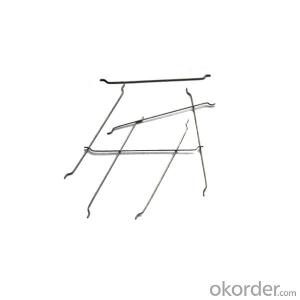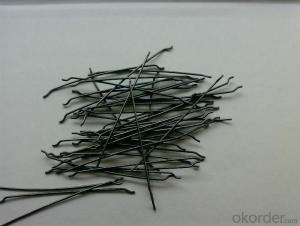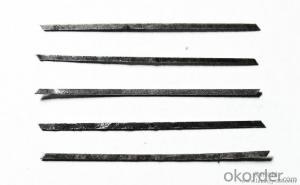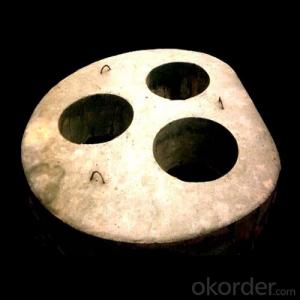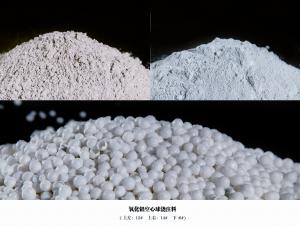All Categories
- - Steel Wire Rod
- - Steel Coils
- - Steel Profiles
- - Steel Pipes
- - Stainless Steel
- - Tinplate
- - Special Steel
- - Steel Sheets
- - Steel Rebars
- - Steel Strips
- - Hot Rolled Steel
- - Cold Rolled Steel
- - Pre-painted Steel
- - Seamless Steel Pipe
- - Welded Steel Pipe
- - Hollow Steel Tubes
- - Galvanized Pipe
- - Stainless Steel Coil
- - Stainless Steel Sheet
- - Stainless Steel Plate
- - Stainless Steel Strips
- - Electrolytic Tinplate Coil
- - Electrolytic Tinplate Sheet
- - Stainless Steel Rebars
- - Solar Panels
- - Solar Water Heater
- - Solar Related Products
- - Solar Inverter
- - Solar Cells
- - Solar Light
- - Solar Energy Systems
- - Solar Controllers
- - Solar Mounting System
- - Solar Pump
- - Solar Chargers
- - Fiberglass Chopped Strand
- - Fiberglass Mesh Cloth
- - Composite Pipes
- - FRP Pultrusion Profiles
- - Fiberglass Mat Tissue
- - Fiberglass Fabrics
- - Fiberglass Mesh
- - Composite Tank
- - Fiberglass Mesh tape
- - Polymer
- - FRP Roofing Panel
- - Fiberglass Roving
- - Monolithic Refractories
- - Ceramic Fiber Products
- - Refractory Bricks
- - Raw Materials For Refractory
- - Suspended Platform
- - Cranes
- - Concrete Machinery
- - Earthmoving Machinery
- - Building Hoist
- - Road Building Machinery
- - Plastic Pipe Fittings
- - Plastic Tubes
- - Plastic Sheets
- - Agricultural Plastic Products
- - Plastic Nets
Q & A
Can monolithic refractories be used for lining EAF tapholes?
No, monolithic refractories cannot be used for lining EAF tapholes.
Are there any health and safety considerations when working with monolithic refractories?
Yes, there are several health and safety considerations when working with monolithic refractories. Firstly, the dust generated during installation or maintenance of monolithic refractories can contain respirable crystalline silica, which can lead to serious lung diseases if inhaled. It is important to use appropriate personal protective equipment, such as respirators, to minimize exposure to silica dust. Additionally, monolithic refractories often require high temperatures for curing or drying, which can create burn hazards. Proper training, precautions, and heat-resistant clothing should be used to prevent burns. Lastly, some monolithic refractories may contain hazardous chemicals, so it is crucial to review the material safety data sheets and follow proper handling and storage guidelines to avoid any health risks.
How do monolithic refractories provide resistance to oxidizing atmospheres in rotary kilns?
Monolithic refractories provide resistance to oxidizing atmospheres in rotary kilns by having a high level of chemical inertness and stability. They are typically made of materials such as alumina, magnesia, or silica, which have a strong resistance to oxidation. Additionally, these refractories are designed to have a dense and compact structure, which prevents oxygen from penetrating into the kiln and causing oxidation. This resistance to oxidizing atmospheres helps to prolong the lifespan of the refractory lining in rotary kilns and maintain the thermal efficiency of the process.
What are the recommended drying conditions for monolithic refractories?
The recommended drying conditions for monolithic refractories typically involve a gradual increase in temperature to remove moisture without causing thermal shock. It is generally recommended to start with a slow initial heating rate, usually around 50°C to 100°C per hour, until a temperature of 200°C to 300°C is reached. After this, the temperature can be increased at a faster rate, usually around 200°C to 300°C per hour, until the desired maximum temperature is achieved. It is important to ensure adequate ventilation during the drying process to allow the moisture to escape. Additionally, it is crucial to follow the specific recommendations provided by the refractory manufacturer for the best results.
How do monolithic refractories handle high-temperature alkali metal attack?
Monolithic refractories handle high-temperature alkali metal attack by utilizing specific compositions and structures that are resistant to alkali metal corrosion. These refractories are typically made using materials such as alumina, silica, and zirconia, which have high melting points and are less susceptible to alkali metal attacks. Additionally, monolithic refractories are designed to have low porosity, preventing alkali metal penetration and minimizing the potential for chemical reactions. Overall, monolithic refractories are engineered to withstand the harsh conditions of high-temperature alkali metal environments.
Wholesale Monolithic Refractories from supplier in Bengal
With our strong network and partnerships, we can ensure that you receive high-quality Monolithic Refractories products at competitive prices. Our team of experienced professionals is committed to delivering excellent customer service and technical assistance.
Whether you are looking for standard Monolithic Refractories products or customized solutions, we have the expertise to meet your specific requirements. Our product range includes castables, plastics, ramming masses, gunning materials, and more. We work closely with leading manufacturers to provide you with the latest and most advanced refractory solutions.
In addition to our sales and technical support, we also offer quotations to help you budget and plan your projects effectively. Our team will assist you in selecting the right products based on your application and specifications. We understand the importance of timely delivery and strive to meet your deadlines.
Partnering with us means gaining access to a reliable and trusted supplier of Monolithic Refractories in Bengal. We have a track record of successfully serving various industries, including steel, cement, power, petrochemical, and more. Our commitment to quality and customer satisfaction sets us apart from our competitors.
Contact us today to discuss your Monolithic Refractories requirements and experience the benefits of working with a leading supplier in the Bengal region. We look forward to serving you and exceeding your expectations.
Whether you are looking for standard Monolithic Refractories products or customized solutions, we have the expertise to meet your specific requirements. Our product range includes castables, plastics, ramming masses, gunning materials, and more. We work closely with leading manufacturers to provide you with the latest and most advanced refractory solutions.
In addition to our sales and technical support, we also offer quotations to help you budget and plan your projects effectively. Our team will assist you in selecting the right products based on your application and specifications. We understand the importance of timely delivery and strive to meet your deadlines.
Partnering with us means gaining access to a reliable and trusted supplier of Monolithic Refractories in Bengal. We have a track record of successfully serving various industries, including steel, cement, power, petrochemical, and more. Our commitment to quality and customer satisfaction sets us apart from our competitors.
Contact us today to discuss your Monolithic Refractories requirements and experience the benefits of working with a leading supplier in the Bengal region. We look forward to serving you and exceeding your expectations.
Hot Search
- Monolithic Refractories in Portugal
- Ceramic Fiber Products in Dominican
- Refractory Bricks in Niue
- Raw Materials For Refractory in Uruguay
- Raw Materials For Refractory in Hungary
- Raw Materials For Refractory in Madagascar
- Ceramic Fiber Products in Oman
- Ceramic Fiber Products in Armenia
- Raw Materials For Refractory in France
- Ceramic Fiber Products in Japan
